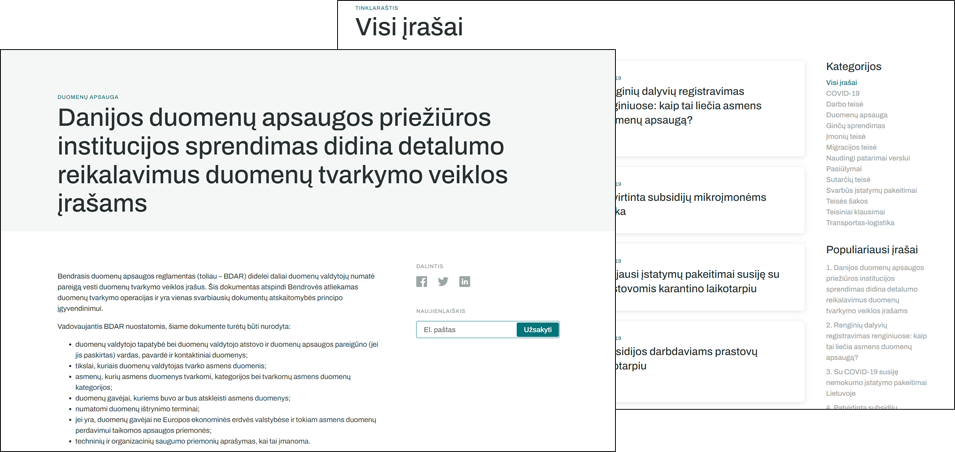Prior to initiating proceedings, Linden conducts a thorough assessment to determine whether the debtor, an individual or a legal entity, is facing bankruptcy or insolvency.
FAQ
Assessment of Debt Recovery Prospects
Service Fees Listing
Linden’s invoice for legal representation in debt award and recovery comprises:
- Preparation and submission of the statement of claim to the court.
- Essential checks and extracts from State Register Office records.
- Case administration throughout the court process until the enforcement document is obtained (assuming no dispute arises over the debt amount). Our Linden legal team diligently monitors the court case daily and makes necessary decisions regarding the debt recovery process in response to case developments. In the event of any court, debtor, or Linden legal action, we promptly notify you via email.
- Following the court’s decision on the debt, we retrieve the writ of execution from the court, transmit it to you, and, upon request, input it into the Bailiff Information System. Please note that the fees indicated on our website do not encompass communication with bailiffs regarding enforced debt recovery actions.
Dispute Over Debt Amount
In approximately 95% of cases, debtors do not dispute the debt amount following our application for a court order on your behalf. However, if a dispute arises, debtors can challenge the debt in one of two ways:
- By submitting reasoned objections to the court order, leading to individual discussions with you on the merits of the debtor’s arguments, strategy for court proceedings, and applicable Linden service fees.
- By submitting objections without specific reasons, which prompts Linden to file the claim with the court under the contested procedure, incurring a fee of 50% of the initial amount paid by the client for preparing procedural documents. Please note that stamp duty costs are slightly higher under the litigation procedure, and we will provide you with the relevant payment details.
Procedure for Debt Recovery
Typically, debt recovery through court involves applying for a court order. However, an action may be initiated in cases where the debtor presents unjustified objections to the court order issuance or when Linden’s legal team deems this approach more suitable for a specific debt recovery scenario.
Post-Award Steps
Following the court’s judgment for the debt, we secure the enforcement order from the court and transmit it to you. If desired, we can transfer the writ of execution to bailiffs for enforcement. Once submitted to the bailiff system, the assigned bailiff takes charge of recovering your debt, which includes seizing the debtor’s accounts and executing other necessary actions. You will receive email notifications regarding the assigned bailiff. We recommend that you actively monitor the progress of the judgment’s enforcement by maintaining contact with the bailiff.
Additional Costs in Successful Recovery
When applying for a court order on your behalf, we must also furnish the court with proof of stamp duty payment. The precise amount of stamp duty can be verified here: [Stamp Duty Amount Link]. The exact figure and payment information will be provided when you submit debt details to the our debt recovery system. Additional expenses may be incurred during proceedings if the debtor disputes the debt amount in court (please refer to the relevant FAQs section). You can find possible enforcement cost details here: https://www.infolex.lt/teise/Default.aspx?Id=32&sid=21.
Reimbursement of Costs by the Court
Typically, the court will reimburse all costs incurred during the proceedings. However, reimbursement may not occur if the debtor’s dispute regarding the existence of the debt is justified.
Stay Updated
Stay informed about our latest news and updates by following our blog and accessing relevant information on our website.

